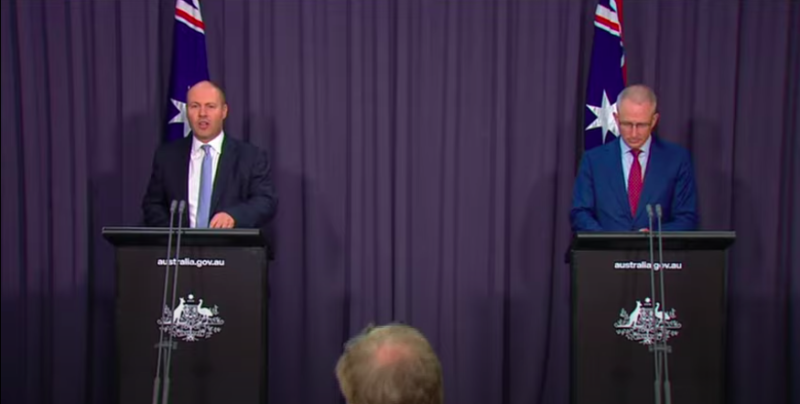Government condemns Facebook’s ‘wrong’ and ‘heavy handed’ actions
Australia’s Treasurer Josh Frydenberg has confirmed Facebook’s CEO Mark Zuckerberg did not warn him of the platform’s decision to strip all news for local mastheads and users in a “constructive” and “pretty lengthy … around half an hour” phone call that took place early this morning, before the announcement broke.
“Facebook was wrong. Facebook’s actions were unnecessary, they were heavy handed, and they will damage its reputation here in Australia,” Frydenberg said at an afternoon press conference with Communications Minister Paul Fletcher.

Frydenberg and Fletcher speaking at the press conference

